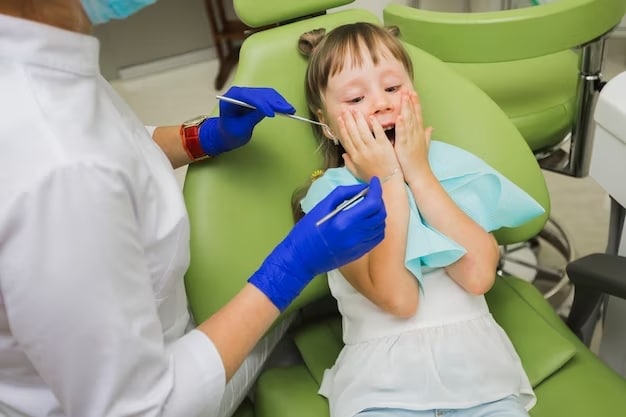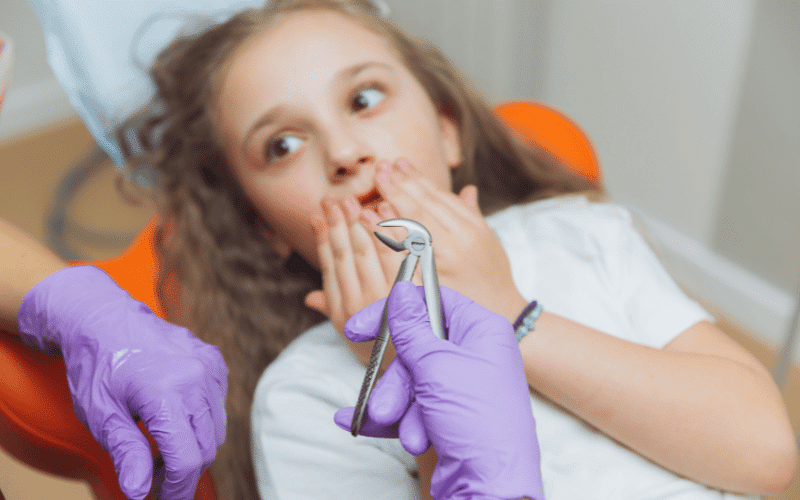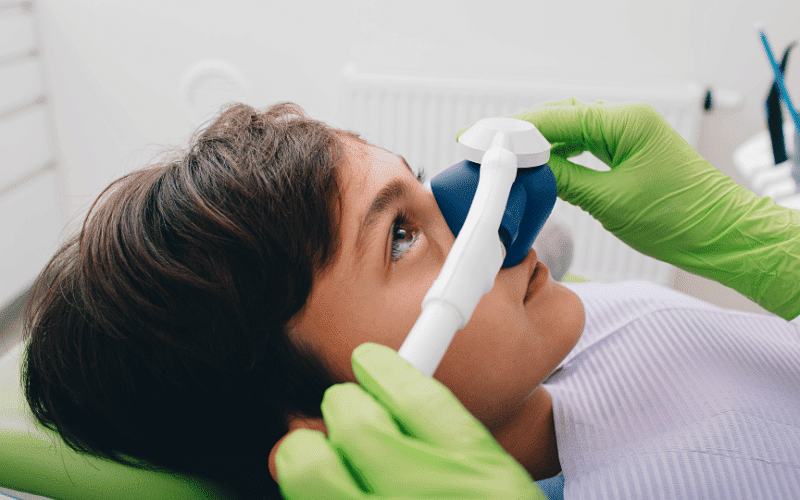How Sedation Techniques Can Help Kids Overcome Dental Anxiety

The thought of visiting the dentist often triggers anxiety and apprehension, especially in the minds of our little ones. Dental appointments can be daunting for children, filled with unfamiliar sounds, bright lights, and the fear of potential discomfort. However, dentistry has evolved, introducing a remarkable solution to alleviate these concerns – sedation dentistry for kids. This innovative approach offers a sigh of relief not just for the young patients but for parents and caregivers as well.
This blog delves into sedation dentistry, uncovering its remarkable benefits in ensuring a positive dental experience for children. From calming anxious nerves to enabling comprehensive treatments, let’s explore how sedation dentistry transforms how we approach pediatric oral care.
Understanding Dental Anxiety in Kids
Dental anxiety in kids is a common emotional response characterized by fear, unease, or apprehension associated with dental visits and procedures. This apprehension can lead to avoidance of necessary dental care and potential long-term oral health issues if not addressed appropriately. Understanding the causes, signs, and strategies to manage dental anxiety in children is essential for parents and dental professionals.
Causes of Dental Anxiety in Kids
1. Fear of the Unknown
Children possess vivid imaginations, and when faced with an unfamiliar situation like a dental visit, their imagination can run wild. The uncertainty about what to expect in terms of procedures, equipment, and sensations can evoke a sense of fear and unease. A dental clinic’s sterile and clinical environment, coupled with unfamiliar instruments, can intensify these feelings of intimidation.
2. Past Negative Experiences
Childhood memories tend to leave lasting imprints, and a distressing dental encounter in the past can significantly shape a child’s perception of future visits. Suppose a child has undergone a painful or uncomfortable dental procedure. In that case, the memory of that ordeal can create a strong association between dental care and negative emotions, leading to heightened anxiety and reluctance to undergo further treatment.
3. Parental Influence
Children are sensitive to the emotions and behaviors of their parents and caregivers. Suppose parents harbor dental anxiety themselves, whether due to their own past experiences or general unease; children can unwittingly absorb and internalize these fears. Observing their parents’ apprehension towards dental visits can lead children to develop similar feelings as they view dental care through their parents’ anxieties.
How Can Sedation Dentistry Help?
Addressing children’s dental anxiety requires recognizing these multifaceted causes and tailoring strategies to alleviate each child’s unique concerns. By doing so, we can help create a more positive and comfortable dental experience for young patients. Sedation dentistry is a game-changer for kids who struggle with dental anxiety. This technique involves the administration of sedatives to help patients relax and remain calm during dental procedures. The goal is to create a comfortable, stress-free environment that promotes a positive association with dental care.
In Allen, TX, you’ll find dedicated professionals specializing in providing sedation dentistry for children. A sedation dentist in Allen, TX, is skilled in tailoring the level of sedation to suit each child’s needs, ensuring a safe and anxiety-free experience.
Types of Sedation
Minimal Sedation
Commonly called “laughing gas,” minimal sedation utilizes nitrous oxide to induce a profound sense of relaxation and tranquility. Administered through a mask placed over the child’s nose, this gentle sedative helps alleviate anxiety and apprehension, making the dental experience more manageable. One of the key advantages of nitrous oxide is its rapid onset and short duration, ensuring that the child returns to their normal state of awareness shortly after the procedure concludes.
Oral Sedation
For children requiring a slightly deeper level of relaxation, oral sedation is a viable option. A mild sedative is administered as a pill or liquid, allowing the child to remain awake throughout the procedure while experiencing reduced awareness of their surroundings. This approach induces a state of drowsiness and calmness, effectively minimizing any distress associated with the dental treatment. The child’s comfort is paramount; oral sedation bridges minimal sedation and more intensive techniques.
IV Sedation
Intravenous sedation represents a more profound level of relaxation, as the sedative is directly introduced into the bloodstream. This technique allows precise control over the child’s sedation level, ensuring optimal comfort and tranquility during the procedure. While the child may drift in and out of sleep, the dentist can readily adjust the sedation dosage as required, tailoring the experience to the child’s unique needs and the demands of the dental work.
General Anesthesia
General anesthesia may be the most suitable approach in cases necessitating extensive dental procedures or for children with severe anxiety. This profound sedation renders the child completely unconscious, eliminating any awareness or memory of the dental treatment. Under the watchful eye of a qualified anesthesiologist, the child’s vital signs and well-being are carefully monitored throughout the procedure. General anesthesia ensures that even the most challenging dental work can be carried out without causing undue stress or discomfort to the young patient.
Benefits of Sedation Dentistry for Kids
- Anxiety Reduction: The most significant advantage of sedation dentistry is its ability to alleviate anxiety. By helping the child relax, the dentist can perform necessary treatments without triggering fear or discomfort.
- Improved Cooperation: Sedation allows the dentist to complete procedures more efficiently, as the child will likely remain still and cooperative.
- Positive Experience: When kids have positive experiences at the dentist, they are likely to maintain good oral hygiene habits and seek dental care as adults.
- Prevention of Dental Phobias: Early positive experiences with sedation dentistry can prevent the development of severe dental phobias that might persist into adulthood.
The Bottom Line
In the journey of safeguarding our children’s overall health, dental care holds a crucial place. The introduction of sedation dentistry has opened new doors of opportunity, providing a comfortable and stress-free experience that children deserve. By conquering dental anxiety, enabling complex procedures, and fostering a positive outlook towards oral health, sedation dentistry has proven to be a game-changer. As parents and caregivers, staying informed about the options available for our little ones’ well-being is essential. As we bid farewell to the traditional dread of dental visits, let us embrace the benefits of sedation dentistry, ensuring brighter smiles and healthier futures for our children. Remember, a proactive approach today paves the way for a lifetime of confident and fearless dental care tomorrow.



